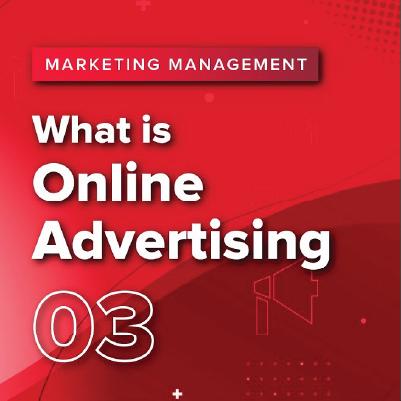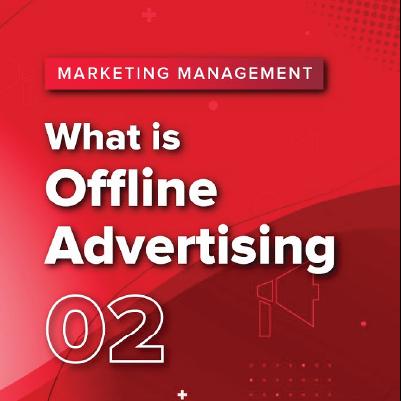Working professionals
Domains
Doctorate
Artificial Intelligence
Machine Learning
Gen AI & Agentic AI
MBA
Marketing
Management
Education
Project Management
Data Science
Doctorate
For All Domains
IIITB & IIM, Udaipur
Chief Technology Officer & AI Leadership ProgrammeSwiss School of Business and Management
Global Doctor of Business Administration from SSBMEdgewood University
Doctorate in Business Administration by Edgewood UniversityGolden Gate University
Doctor of Business Administration From Golden Gate UniversityRushford Business School
Doctor of Business Administration from Rushford Business School, SwitzerlandGolden Gate University
Master + Doctor of Business Administration (MBA+DBA)Leadership / AI
Golden Gate University
DBA in Emerging Technologies with Concentration in Generative AIGolden Gate University
DBA in Digital Leadership from Golden Gate University, San FranciscoArtificial Intelligence
Degree / Exec. PG
IIIT Bangalore
Executive Diploma in Machine Learning and AIOPJ Global University
Master’s Degree in Artificial Intelligence and Data ScienceLiverpool John Moores University
Master of Science in Machine Learning & AIGolden Gate University
DBA in Emerging Technologies with Concentration in Generative AIExecutive Certificate
IIITB & IIM, Udaipur
Chief Technology Officer & AI Leadership ProgrammeIIIT Bangalore
Executive Programme in Generative AI for LeadersupGrad | Microsoft
Gen AI Foundations Certificate Program from MicrosoftupGrad | Microsoft
Gen AI Mastery Certificate for Data AnalysisupGrad | Microsoft
Gen AI Mastery Certificate for Software DevelopmentupGrad | Microsoft
Gen AI Mastery Certificate for Managerial ExcellenceOffline Bootcamps
upGrad
Data Science and AI-MLMachine Learning
Machine Learning
Gen AI & Agentic AI
Gen AI & Agentic AI
IIIT Bangalore
Executive Programme in Generative AI for LeadersMasters

Paris School of Business
Master of Science in Business Management and TechnologyO.P.Jindal Global University
MBA (with Career Acceleration Program by upGrad)Edgewood University
MBA from Edgewood UniversityO.P.Jindal Global University
MBA from O.P.Jindal Global UniversityGolden Gate University
Master + Doctor of Business Administration (MBA+DBA)Executive Certificate
IMT, Ghaziabad
Advanced General Management ProgramMarketing
Executive Certificate
upGrad | Microsoft
Gen AI Foundations Certificate Program from MicrosoftupGrad | Microsoft
Gen AI Mastery Certificate for Content CreationOffline Bootcamps
upGrad
Digital MarketingManagement
Degree
O.P Jindal Global University
MSc in International Accounting & Finance (ACCA integrated)
Paris School of Business
Master of Science in Business Management and TechnologyGolden Gate University
Master of Arts in Industrial-Organizational PsychologyExecutive Certificate
IIM Kozhikode
Human Resource Analytics Course from IIM-KupGrad | Microsoft
Gen AI Foundations Certificate Program from MicrosoftEducation
Education
Northeastern University
Master of Education (M.Ed.) from Northeastern UniversityEdgewood University
Doctor of Education (Ed.D.)Edgewood University
Master of Education (M.Ed.) from Edgewood UniversityProject Management
Certification
Knowledgehut
Leadership And Communications In ProjectsKnowledgehut
Microsoft Project 2007/2010Knowledgehut
Financial Management For Project ManagersKnowledgehut
Fundamentals of Earned Value Management (EVM)Knowledgehut
Fundamentals of Portfolio ManagementKnowledgehut
Fundamentals of Program Management-35c169da468a4cc481c6a8505a74826d.webp&w=128&q=75)
Knowledgehut
CAPM® CertificationsKnowledgehut
Microsoft® Project 2016Certifications & Trainings
-7f4b4f34e09d42bfa73b58f4a230cffa.webp&w=128&q=75)
Knowledgehut
PMP® Certification-7f4b4f34e09d42bfa73b58f4a230cffa.webp&w=128&q=75)
Knowledgehut
PMI-RMP® Certification-7f4b4f34e09d42bfa73b58f4a230cffa.webp&w=128&q=75)
Knowledgehut
PMP Renewal Learning PathKnowledgehut
Oracle Primavera P6 V18.8Knowledgehut
Microsoft® Project 2013-7f4b4f34e09d42bfa73b58f4a230cffa.webp&w=128&q=75)
Knowledgehut
PfMP® Certification CourseKnowledgehut
Project Planning and MonitoringPrince2 Certifications
Knowledgehut
PRINCE2® FoundationKnowledgehut
PRINCE2® PractitionerKnowledgehut
PRINCE2 Agile Foundation and PractitionerKnowledgehut
PRINCE2 Agile® Foundation CertificationKnowledgehut
PRINCE2 Agile® Practitioner CertificationManagement Certifications
-7f4b4f34e09d42bfa73b58f4a230cffa.webp&w=128&q=75)
Knowledgehut
Project Management Masters Certification ProgramKnowledgehut
Change ManagementKnowledgehut
Project Management TechniquesKnowledgehut
Product Management Certification ProgramKnowledgehut
Project Risk ManagementData Science
Degree / Exec. PG
O.P Jindal Global University
Master’s Degree in Artificial Intelligence and Data ScienceIIIT Bangalore
Executive Diploma in Data Science & AILiverpool John Moores University
Master of Science in Data ScienceExecutive Certificate
upGrad | Microsoft
Gen AI Foundations Certificate Program from MicrosoftupGrad | Microsoft
Gen AI Mastery Certificate for Data AnalysisupGrad | Microsoft
Gen AI Mastery Certificate for Software DevelopmentupGrad | Microsoft
Gen AI Mastery Certificate for Managerial ExcellenceupGrad | Microsoft
Gen AI Mastery Certificate for Content CreationOffline Bootcamps
upGrad
Data Science and AI-MLupGrad
Data AnalyticsFresh graduates
Domains
Data Science
Management
Marketing
Data Science
Bootcamp
Offline Bootcamps
upGrad
Data Science and AI-MLupGrad
Data AnalyticsManagement
Marketing
Bootcamp
upGrad Campus
Advanced Certificate in Performance MarketingOffline Bootcamps
upGrad
Digital Marketing- Study abroad
- Offline centres
More
RESOURCES
BlogsCutting-edge insights on education
WebinarsLive sessions with industry experts
TutorialsMaster skills with expert guidance
Learning GuideResources for learning and growth
COMPANY
Careers at upGradYour path to educational impact
Hire from upGradTop talent, ready to excel
upGrad for BusinessSkill. Shape. Scale.
Talent Hiring SolutionsReach. Rekrut. Redefine.
Experience centerImmersive learning hubs
About usOur vision for education
OTHERS
Refer and earnShare knowledge, get rewarded
Affiliate Marketing Courses Online
Affiliate Marketing is another name for promoting another company's products or services on your site. By doing so, you can get a small commission every time.
-5d0f5b994a674e7eae7d8c6a60bb6cb1.jpeg&w=3840&q=75)
Affiliate Marketing Course Overview
Affiliate marketing is another name for promoting another company's products or services on your site. By doing so, you can get a small commission every time a customer purchases their products based on your recommendation. Often you have seen affiliate marketing websites like BuzzFeed or NerdWallet promoting certain products from top e-commerce and banking sites ranging from skincare, fashion, and food to credit cards and insurance policies.
It is an online process of making quick money by being an affiliate partner for a brand. The websites that act as affiliate partners contain sponsored posts, reviews, and affiliate links, frequently with the disclaimer that the "site may earn a portion of the sales from the products featured here".
With the emergence of the Internet, Affiliate marketing has gained prominence too. Since affiliate marketing websites do not promote their products, the algorithm of such promotion may sound confusing. However, it is a highly successful program based on honesty and transparency and is followed by the top multinational companies worldwide.
Affiliate marketing is not the same as paid social (Facebook ads, Instagram ads, etc.) or Paid search (like Google Ads that feature at the top of Google searches). It benefits both the company whose products are being promoted and the site promoting those products. The aim is to strategically create engaging content that, when managed correctly, will increase traffic for the affiliate partners, reduce the PPA/CPA(Pay Per Action/Cost Per Action) charges, and increase the revenue, especially the Return On Ad Spend (ROAS).
Below, we have provided a step-by-step explanation of the working of an affiliate program:
- As the owner of affiliate marketing website(s), you might promote specific products or brands by companies with whom you have signed a contract for promotional purposes.
- Now, the person visiting your site for recommendations might click on the links to the product purchase web pages embedded in your site or affiliate marketing content. Thereby they become not just an audience but also a potential consumer.
- Once the customer clicks on the promotional link on the affiliate's site, their web browser will automatically store a cookie. A cookie stores data in the web browser from a website that has been visited. This stored cookie will help the Software on A Service Platform, or the affiliate marketing network, to monitor the consumer's journey to the shopping cart with the featured product straight from the affiliate page.
- The buyer then gets redirected to the brand's product page and then buys a product or service from it.
- Since the affiliate network is responsible for executing that sale, it is automatically paid a commission per the contract.
The major players in affiliate marketing are
1. The merchant: the company which has a product or service to promote
2. Affiliate marketer: the advertising agency or individual who has access to the targeted customer base
3. Affiliate marketing software for tracking leads and sales
4. An affiliate manager monitors the partnership, which is the affiliate program.
To augment sales, many global businesses work with a diverse number of affiliate marketers. However, the same strategies are not employed by all for maximizing product awareness among consumers.![]()
In fact, as a potential affiliate marketing partner, you have various affiliate marketing tips and avenues to choose from.
1. Run PPC ads: PPC Pay-per-click (PPC) advertising is one of the most effective strategies. It involves placing ads in search results or affiliate marketing content of websites to generate clicks. The company pays, and the hosting affiliate marketing platform or affiliate marketer gains money each time a client clicks on these ads.
2. Leverage the Internet and Social Media: Advertisers can connect with innumerable consumers across the global village through social media platforms by finding people who are enthusiastic about their favorite brands and products. As per the findings of GlobalWebIndex, almost half of the online adults do their research for buying products on social media sites.
3.Search engine optimization: SEO helps your web pages gain more visibility to the people who will be your potential consumers. You can make this possible by attracting those potential customers who are seeking precisely what you are promoting — by deliberately integrating common, searchable keywords in your content, picture tags, and other metadata.
4.Blogging: Affiliate blogging is one of the most successful ways in which firms can promote themselves via affiliate marketing. Once you begin an affiliate marketing blog, you can create knowledge in your field, show yourself as a reliable source for valuable advice, and cultivate a reader base comprising enthusiastic people who return for more.
5. Promotional videos: Affiliate marketers should utilize online video content to promote new commodities, host Q&A sessions, communicate with niche audiences, and provide demonstrations live online, making not only dynamic but also visually stimulating interactions for potential consumers.
6.Coupons and deals: Who does not love a good bargain? According to Big Commerce, around 90% consumers use coupons. (Source)
7. Reviews: Reviews have the power to decide both the brand's and affiliate marketing campaign's impact on the target consumer base. Survey has shown that 95% consumers tend to read the online reviews before they decide to make a purchase. And 58% say that they would pay more for the brands with good reviews. Most content for affiliate marketing is provided by professional reviewers who write product evaluations and provide personalized links for customers to click through and buy. Most of their digital editions, from BuzzFeed to Vogue, Marie Claire, and GQ, consist of affiliate marketing reviews.
1. Decide your niche or specialization: To start affiliate marketing, you must pick the best place for affiliate marketing that suits your interests. We suggest that you choose a topic you are well-versed in and one that is genuinely helpful for others. Affiliate marketers must choose a niche to influence their audience. However, you also need to have your goals clear. If you want to make quick money and create content for affiliate marketing in multiple niches, you will not gain followers or make sales.
So, how do you choose your audience for affiliate blogging?
Keep your ideas simple, but do not make the niche too wide. Ask yourself self-introspective questions like which topic sparks your passion, whether consumers search for your preferred niche on search engines, and whether there is or will be a consistent demand for your chosen field in the market. Furthermore, it would help to find out the competition level in your chosen niche and whether there are previous affiliate marketing programs in this field.
2. Get a thorough idea about the market requirements: It is vital to analyze the contemporary demand for your affiliate marketing products. Thus you will know which items or services consumers want to spend their money upon. Once you gain that knowledge, you can start promoting products that will bring you gains.
The best way to get an idea about the demand for affiliate products is to go on Google Trends. Once you search for a particular item on that site, you will get to know about its search volume, that is, how frequently this topic has been googled by Internet users on a scale of 0 to 100. If you aim to be region-specific, you will get regional analytics of the search trends on that topic.
3. Build your site: This is the most vital stage as the process will determine your future in digital affiliate marketing. We suggest you create an affiliate marketing blog to promote the products of your brand partners. The secret to building a successful affiliate marketing business is to create captivating and valuable content and generate organic traffic. While registering your site, choose a domain name that is slightly generic but short and simple. Choose a web hosting service that is cheap but also reliable, especially when it comes to customer service. Then when you are ready to set up your blog, choose one software from the ones provided by your web host, which is easy to use, especially for creating posts.
4. Create top-notch content: What kinds of content can you provide to enable you to establish yourself as a reliable affiliate marketer? You will require content to cultivate your audience, even though you have the right kind of niche and an engaging website.
There are numerous options for creating content for the target audience, including product reviews, how-to tips, and blog entries with affiliate product recommendations. This ensures that your audience is constantly engaged with top-notch content. As an affiliate marketer, you will receive a commission for any transaction made as a result of your referral.
5.Research affiliate marketing programs and sign up for them: Once you have narrowed down on a specific niche, you have to find out which affiliate marketing programs can assist you in promoting things in that niche. Affiliate marketing programs operate as a link connecting affiliate marketers and merchants. When you become a member of an affiliate marketing program, you effectively become a "partner" with the merchant's sales pipeline.
6. Choose the right affiliate marketing strategy: If you want to develop a loyal customer base, you have to pick the right marketing strategy. Because organic search accounts for 50-80% of all blog traffic, SEO should unquestionably be a part of any audience-building strategy. You can create social media posts and include links in newsletters and youtube affiliate marketing videos.
To ensure affiliate marketing income, the partners - the brand whose products are being promoted and the endorsing party- must agree on a specific payout package for commission. Also known as pricing models, these depend upon the marketing objectives of the involved parties, but mainly upon the target sales. Based on the agreed compensation model, the advertiser or the affiliate partner has to successfully convert the site visitor traffic into customers to get the agreed-upon commission.![]()
Usually, the merchant offers only one kind of affiliate marketing commission model. However, some might offer a variety of choices, from which the affiliate partner has to choose one. The top affiliate marketers choose the model that will be most profitable for both parties. On the other hand, merchants pick their affiliate marketing commission models based on their marketing objective. We have listed the types of affiliate marketing commission models that are prevalent at present.
CPC(Cost per click): The concept behind this affiliate marketing strategy is to designate a link click as the intended action. Each time a visitor clicks on that link, the affiliate receives credit for the action, and the merchant releases a commission. It makes no difference how often the link is presented or what happens after the click. It all comes down to generating clicks. As with the cost per action, or CPA affiliate marketing model, merchants do not gain any direct revenue with this model of CPA marketing website, so the merchant assumes the responsibility of converting the visitors to customers once the click is created.
CPA(Cost per action): CPS(Cost per sale): CPS is the most widely known compensation model. According to some research findings, over 80% of online affiliate marketing programs utilize the CPS compensation model. This model implies that as soon as the affiliate marketers sell the featured brand's product, they will obtain a commission calculated as a percentage of the revenue or a predefined sum.
The affiliate marketing specialist promotes a link to affiliate marketing products or services. The direct link to the product page on the merchant's website is given, where the product can be purchased. Because of the cookie storage algorithm, the clicks made on the buy button and the actual sales are recorded for several days after the original click was made on the link. After the completion of the sales, the affiliate marketer receives a payout in the form of a percentage of the sales made.
CPL(Cost per lead): The Cost per lead affiliate marketing model is widely used in B2b organizations where the goal is to accumulate contact information from potential consumers. In this commission model, the affiliate usually receives a set amount for every lead they generate. You will frequently find this model in mobile applications, which reimburse the commission for each lead created in their app.
CPI(Cost per install): Another method for brands to promote and increase their exposure through affiliate marketing software is to incentivize users to download their app. In this case, the affiliate marketing platform refers website visitors to install the application using the affiliate link. Since this is the desired objective for the merchant, the affiliate partner is paid for every installation
CPE(Cost per engagement): The Cost Per Engagement (CPE) commission model works on the user's level of interaction with the application or the advertisements. It is very popular for incentive traffic to promote engagement-based campaigns, like "reach level 5" in a game or "sign up for a music subscription." The fee is calculated based on the frequency of users performing the intended action.
RevShare (Revenue Sharing): The Revenue Sharing affiliate marketing income model, commonly called RevShare, is a commission-generating framework in which the affiliate earns a commission as a percentage of user purchases. This model is prevalent in sports betting websites, stock investments, forex trading, etc.
Step 1: Select a platform -
Affiliate marketing can hypothetically be conducted on any network, even Instagram. Building an audience and increasing affiliate sales becomes significantly easier if you have a blog or a video channel like a YouTube channel. Setting up blogs is free on WordPress. Furthermore, since creating and uploading content to YouTube is free, it appeals to a broader audience. You can turn your affiliate videos SEO-friendly by inserting affiliate links in the videos' descriptions.
Step 2: Decide on a niche -
Ensuring a specific emphasis on your issues will help you gain a target demographic, thus making you rank higher in search engines.
Step 3: Find suitable affiliate programs to sign up for -
You can choose high-paying, low-volume affiliate marketing programs that are extremely specific in their niche, low=paying, high-volume affiliate programs like video games, and high-paying high, volume affiliate programs like those selling credit cards.
Step 4: Write fantastic content -
If you want your affiliate site to flourish, you'll need to write high-quality material seamlessly incorporating your affiliate links.
Step 5:Convince people to check your affiliate marketing site -
You've made some excellent content. Now you have to increase its viewership. You can do it through PPC ads, email marketing, and Search Engine Optimisation(see "Generate Traffic to Your Site" section for details)
Step 6:
Amplify the number of people who would willingly on your affiliate links and convert to customers.
Deciding on a specific niche market does networking with advertisers and sponsors easier. It also helps focus your marketing efforts and allows you to broaden your audience fast.
The largest market niches to approach are the mainstream in affiliate marketing, characterized by high competition, excessive demand, time-tested longevity, easily accessible customers, and a lot of related merchandise and social media forums. If you discover a niche that most other affiliates have ignored, it is usually because demand is relatively less– so customers tend to be few – and the quantity of affiliate products is limited.
Do your homework by extensively researching: While selecting niches, a good starting point is with what personally best serves you. \You probably have already splurged on these items, so you understand consumer psychology. You simply have to ensure if they are a viable form of affiliate business.
It is common to find several websites centered on the same niche, such as travel or skincare. However, a place such as this is too extensive for affiliate marketing. What you can do is to take that broad niche and consult the Quora website. On this website, people ask questions about any topic and receive detailed answers from the community. These questions help you identify specific niches within the larger category you've studied.
Check the monetization possibilities: The next stage of the process is finding monetizing opportunities in that niche topic. It is always a good idea to choose a niche with multiple monetization avenues so that you can maintain additional revenue streams. This mitigates your risk and ensures your continued operation even if one of your affiliate programs is terminated. First, you must assess the competition and note what monetization strategies they employ.
Perform a Google search for your niche topic, then examine the first fifteen websites that come in the results. These sites should ideally be funded with sponsored content such as Google ads, Amazon items, and their membership zones, among other things. Then go to Amazon Marketplace or Clickbank and find products in your niche with a higher "Gravity" rank and higher levels of average income per sale. This will help you specify your affiliate marketing products.
Double verification of search volume of proposed niche: Another critical step to be considered while determining an affiliate niche is double-checking the usual cost per click of keywords in that market segment. Cost per click (CPC) demonstrates the average amount marketers are willing to pay for one keyword click. The search volume indicates the frequency of a keyword search on Google or similar search engines. The ideal keywords in your niche will have a CPC of at least $2 and will be searched a minimum of 10,000 times. The topic is thus mainstream enough to yield substantial gains, and marketers will pay a reasonable amount to have their advertisements displayed for these search queries.
Your objective as an affiliate marketer is to discover profitable items within your niche that will ultimately benefit your clients. You would have to provide a broad array of affiliate products for your viewers to choose from and eventually buy through your marketing efforts.
Begin by researching affiliate marketplaces. The right place to look for affiliate products is an affiliate marketing platform (also known as a marketplace). You will get various affiliate marketing products in diverse categories on these channels. They also demonstrate important statistics such as EPC, average sales, average commission, and rankings to help you evaluate the market performance of a product.
Finally, join individual affiliate marketing programs. Often, online products come with affiliate programs. You must identify the hottest selling products in your niche and capitalize on their marketing potential. For example, if you have a cat blog, you can look for an affiliate program related to cat food or cat health care. Seek out businesses that supply such products online, and look for links to affiliate programs on their websites.
Establishing a dedicated website to manage your affiliate marketing program is only the first step. You can develop your new CPA affiliate marketing website in four easy steps.![]()
Step 1: Decide the platform on which to build your website
As you may already know, a content management system (CMS) or website building domain is the primary item you will require to establish a new site. When constructing an online domain for your affiliate marketing business, using WordPress has several perks as a free affiliate marketing website.
Step 2: Use Plugins and a Template to Personalize Your Website
You'll need to build your affiliate website and incorporate crucial features once you've decided on a platform. This entails choosing a theme and installing essential plugins for WordPress users. The ideal WordPress theme that adheres to the layout of your company's website. This visual uniformity will convince your affiliates that they are in the proper spot.
Plugins, on the other hand, are where you will get the most out of your money. You can utilize them to set up a payment structure, track sales, and perform other important affiliate-related activities.
Step 3: Promote Your Business affiliate marketing platform with Banners and Links.
Affiliate marketing system websites rely on links to succeed. Sharing yours with your partners is crucial for your new website's success. While manually creating links is always an option, owning a plugin that does it for you is far more convenient.
You might also want to design visuals or banners that affiliates can use on their websites or social media accounts in combination with conventional text links. This helps market your brand and gives your partners an edge in creating successful campaigns.
Step 4: Keep track of your affiliates' performance and pay them.
Keeping track of an affiliate program is a never-ending task. After you've created your website, you will have to check it frequently to keep track of your partners' click-through rates, sales, and commissions.
This is useful for your entire affiliate marketing strategy and ensuring that your affiliates are duly compensated and on time.
Optimize Your Content Around Keywords That People Search For
One of the most effective ways to promote your affiliate marketing website is through affiliate programs. Their success, however, relies mainly on meticulous search engine optimization (SEO).
The quality of your content, as well as the affiliate keyword research you conduct, greatly impacts where you stand in organic search engine results.
Finding the best keywords, nevertheless, might be tough with such a wide assortment of choices. When finding and using keywords, you need to be strategic in your search.
You can evaluate which partnerships are generating the best return on investment by keeping track of their progress (ROI).
Your affiliate marketing business can be established or damaged by the level of your site's traffic. There are many ways you can employ this technique to boost outcomes and bring in targeted leads. Some of them are:
- Provide high-quality content.
- Participate in social media interactions.
- Contribute to industry blogs as a guest blogger.
- Improve the links on your website.
Affiliate marketers get a Unique ID number with which to track their sales. When you embed a hyperlink in your affiliate marketing blog that directs visitors to a product on the company's online platform, that unique Id will help track the sale later to you, the affiliate marketer. You will get a commission after the completion of the sales. While the company will monitor your sales, you, too, are responsible as an affiliate marketer to make a note of your affiliate account leads and ensure you get your affiliate marketing earnings for the sales you made.
An effective affiliate link performance monitoring mechanism is essential to understand your affiliate marketing strategy clearly. Otherwise, you will never know how much your affiliate marketing earning is.
Affiliate sales can be tracked digitally and manually through Google Analytics and via bookmarks and spreadsheets, respectively.
Tracking Affiliate Marketing sales via Google Analytics: Affiliate sales can be tracked with Google Analytics using Urchin Tracking Module(UTM) parameters, albeit this is a little more complicated and cumbersome. It's usually preferable to hire help or choose another method if you are not adept at handling HTML and Javascript.
Affiliate links can be used in mainly two ways. The first are cookies that are stored on the developer's computer. When a consumer clicks on an affiliate link and is directed straight to a landing web page, the developer saves a cookie marked with the affiliate ID, which is utilized by a tracking pixel to record consumer orders.
Or you can resort to storing cookies through Google Tag Manager (GTM) and Google Analytics. However, remember that when a consumer is using certain kinds of ad blockers, Chrome extensions, or software, this method may not be foolproof in tracking them.
The manual method of tracking affiliate sales involves setting up a storage folder comprising the login pages of all of your software affiliate programs. You can do this using bookmarks, a manual document, or a different shortcut, as you prefer. Then you can store the information manually in a log sheet like the Affiliate Marketing Template by Analytics.
Tracking Links
Because tracking affiliate links helps businesses to track purchases back to the affiliate and distribute rewards, it acts as the backbone of affiliate marketing strategy. Tracking assists in recognizing and rewarding top affiliates. Tracking is quite useful if you want to determine the most profitable links and pages.
Direct Links
By direct linking, affiliates can lead customers directly to the landing page of the advertised brand from an advertisement, email, or other promotional materials, and the conversions and ad campaign performance can be attributed to the affiliate partner who contributed the traffic.
Product Price and Commission
In affiliate programs, the most common type of percentage commissions is the ones ranging from 5 to 30%. Fixed-amount commissions, in contrast, will be working for your business if you only campaign for a few specific products, each with a predetermined price.
Payment
The four main types of affiliate payments are:
Pay per click: payment is made to the affiliate based on the number of times the reader clicks on their link
Pay-Per-Action: An affiliate gets compensated for each new lead they generate or for each sale they confirm.
Pay per impression: The affiliate gets paid every time a reader clicks on the merchant's website ads.
Two-Tier Affiliate Programs: The affiliate marketer governs an underlying affiliate program and earns commissions on their referrals and from their network's referrals.info unclear/unavailable
Affiliate RSS Feeds
RSS, called "Really Simple Syndication," is a delivery method for routinely updated web content. People "subscribe" to their preferred feeds, allowing them to stay updated with the most recent information on various sites. Affiliate managers could utilize RSS feeds to advertise their products to their affiliates. These can be content feeds, new product feeds, or email feeds.
Affiliate Lists, Reviews & Search Boxes
One of the most popular marketing techniques as an affiliate is blogging. However, you might be stuck in a circumstance where blogging is not the most viable option for you. You may be attempting to widen your sources of affiliate marketing income as a professional affiliate marketer. That way, you will always have another source to fall back upon if one fails.
We have listed some ways in which you can augment your affiliate marketing earnings:
- Use promotional email newsletters: A newsletter is an email you constantly deliver to your subscribers. Newsletters aid long-term client retention. In each email (or issue), you can provide your readers with updates, information, or the most recent hints and tips relevant to your offerings in each email.
- If you publish money-saving skincare and beauty suggestions and solutions in your newsletters, you may suggest products that aid customers in their beauty regime. When subscribers click on an affiliate link in your newsletter, they'll be sent directly to the merchant's product page.
- Make product review videos: According to a Wyzowl survey conducted in December 2021, 84 percent of consumers claim to have been persuaded to purchase products and services after watching a video about all this. You could use this method if you are confident in front of the camera. For example, you might create compelling videos to review your favorite products and include your affiliate links in the caption or video descriptions. This is how youtube affiliate marketing works.
- Host podcasts: In each podcast episode, you can suggest using a relevant product or service and include a referral link in the captions. In addition, we recommend adhering to a consistent schedule (e.g., weekly episodes). It will keep your listeners interested in your material, increasing your affiliate marketing revenue.
Businesses increasingly realize the benefits of affiliate marketing in their advertising strategies nowadays. Affiliate marketing helps companies sell a product on a tight budget, spending little effort and time, and with a low-risk margin while ensuring a high-profit margin, increased brand exposure, and business expansion.
Businesses can decide and determine a target market and select the ideal assortment of ambassadors to represent their brand. However, what about the affiliate marketers themselves? What benefits do they have?
- Your work location does not matter as long as you have a stable internet connection. You can work from anywhere globally, at any time, and for as long as you like. With affiliate marketing, it is possible to live a "digital nomad lifestyle" with affiliate marketing. The opportunity to manage work from any location and at any time is undoubtedly the most compelling argument for being an affiliate marketer.
- It costs very little to start affiliate marketing in the digital marketing business. It is an excellent place to start if you want to be an entrepreneur. To begin, you don't even require to amass a vast capital. Most of the top affiliate marketing programs are free. You will have to spend mainly on the referrals and marketing of the affiliate products or services. Even those expenditures are much lesser than renting business property, provided you can do the marketing effectively.
- Taking the initial steps in digital affiliate marketing is relatively easy. You're almost there if you find the highest paying affiliate programs, build a website domain, figure out how to garner traffic, and sell your affiliate products or services. It is a lot easier than most people believe.
- You don't have to worry about taking the pains to develop an actual product or service. Companies offering affiliate marketing programs will handle the grunt work, allowing you to concentrate solely on promoting your affiliate marketing software. You also bid farewell to all of the obligations and logistical headaches of launching your product.
- To launch an affiliate marketing company, you don't need a highly specialized master's degree. The steps are simple and easy to follow. People from all walks of life can learn how to run a profitable internet presence in affiliate marketing. They just have to learn the fundamentals, use them in real-life situations, and reap the benefits of their sustained effort.
Advantages
- Merchants get access to a much larger market to sell their commodities, resulting in a diverse clientele.
- They can get more buyers without wasting time looking for them.
- At no additional expense, affiliate marketing tools that track and gather statistics from affiliate sites provide accurate and real-time customer behavioral trends and requirements.
- The affiliate marketing platform makes it simple for digital marketers to generate additional revenue sources. The marketing banners of the advertising merchants result in immediate sales for which they receive a commission.
- The affiliate does not have to make a considerable investment.
- Does affiliate marketing have its cons too? Unfortunately, yes, although very few.
Disadvantages
- Certain merchants may have to incur significant commission rates and high maintenance fees to support affiliate facilitators or brokers.
- To earn sales commissions, affiliates may engage in deceptive and false advertising, making claims and promises about the product and services that are wholly false or overstated.
- Unscrupulous and dishonest merchants may cancel programs anytime without notifying affiliates, thus depriving them of commissions.
Here is how you can become an Affiliate Marketer in some easy steps. For details, you can check out the "How to Approach Affiliate Marketing" section and the "How can Beginners Start Affiliate Marketing?" section provided above.
● Learn the fundamentals of affiliate marketing.
● Pick your marketing platforms strategically.
● Determine which products to advertise.
● Calculate to see how much revenue you can make.
● Find your unique perspective.
● Find out how to write excellent product reviews by taking affiliate marketing classes.
● Gather information from your competitors, especially the top paying affiliate programs.
● Make a content marketing roadmap.
● Begin developing material and keep doing so.
If you wish to make money with affiliate marketing, here are some great reasons why affiliate marketing could be suitable for you. We have listed them in brief for your convenience.![]()
Facility for remote working, especially with an online affiliate marketing business.
1.Digital affiliate marketing is a low-cost business to start.
2. It's simple to get started.
3. You don't need to build your product or service because you are working as an affiliate partner.
4. You can turn your business into a "genuine" source of passive earnings.
5. Affiliate marketing offers a lot of flexibility.
6. No formal education is required. However, there are plenty of affiliate marketing courses online free available
7. The future is quite optimistic in affiliate marketing – you can earn millions as an affiliate.
Here are some of the reasons why affiliate marketing courses online are better than their offline counterparts:
● Adaptive Mode: The flexibility of online affiliate marketing training allows you to learn at your speed and in your preferred environment. Unlike physical classroom courses, there is no pressure to maintain a minimum attendance score.
● Lesser expenditure: Another element influencing a student's decision to enroll in an online course is their financial situation. On average, online education is significantly less expensive. There are no additional costs like accommodation expenses, for instance.
The usual affiliate marketing training course content consists of the following topics:
- Introduction to affiliate marketing: This module usually covers a brief chronology of affiliate marketing and its evolution, its basis, and the fundamentals of affiliate marketing. You will also learn about the affiliate marketing commission models, cookie policies, and tiered affiliate marketing.
- Affiliate marketing and its real-time application: The pros and cons of affiliate marketing, what you should expect, and so on.
- Affiliate marketing platform: You will learn about the procedure employed by top affiliate marketing programs like Commission Junction, Amazon Associates, etc.
- Choosing the niche: Here, you will get some guidelines and practical examples about the best niche for affiliate marketing that suits your needs.
- Affiliate marketing programs enrolment: You will be guided through the entire process from signing up as an affiliate partner, logging into the account, incorporating affiliate marketing links into your website content, and how you can manage your online affiliate marketing performance and the sales.
- Affiliate marketing tips: This section is about some essential but vital hacks on promoting your affiliate marketing business and successfully bypassing the hurdles that will come along. You will learn valuable affiliate marketing skills like research and analysis of the market trends and how to build your affiliate marketing strategy.
- Setting up individual software affiliate programs: The skills taught in this module include networking with affiliates and pitching your sales idea to them, buying a website domain, naming it, and hosting it with the help of a hosting provider. You will also learn about boosting affiliate numbers, promoting your affiliate service product, the legal terms and conditions of a network service agreement, and how to utilize the collected data and consumer returns.
- Apart from the skills mentioned above, you might also learn the secret to writing top-notch affiliate marketing content from top affiliate marketing courses.
Affiliate marketing is being used by businesses of all sizes and capacities to help them develop their enterprises.
They invest crores of rupees on high ticket affiliate marketing to promote their products and services.
The time is ripe to dabble in affiliate marketing since you can become an expert in this field quickly.
At present, affiliate marketing accounts for 15% to 20% of total online sales.
The IAMAI (Internet and Mobile Association of India) projects that the Indian affiliate marketing sector will reach $835 million and may even surpass it by 2025.
In research conducted in 2019, NASSCOM (The National Association of Software and Service Companies) discovered that India has the world's third-largest development agenda.
As for the potential of affiliate marketing in India, the recent influx of internet enterprises promises a lot in this field.
The top affiliate marketing courses in India, like that of Amazon, cover everything from the fundamentals of affiliate marketing to more advanced topics like affiliate products on social media.
These affiliate marketing courses offer full-time access and many materials to help you get started. You will learn how to use targeted keywords to increase your sales.
In the courses, you'll learn about tools that can help you generate leads and deal with other issues. No wonder Indians are especially interested in these courses.
These courses are for anyone wishing to use affiliate marketing as a source of passive income or a career. In most situations, especially with affiliate marketing free training, you will also receive free affiliate marketing certification.
The top affiliate marketing programs will offer an average base salary of 360000 INR per annum (Source). The salary for online affiliate marketing managers is approximately 345000 INR per annum (Source). Your salary will increase with experience. Hence for affiliate marketing managers with less than one year of experience, it can be as low as 2.1 lacs INR per annum, while for those with almost 15 years of experience, it can be as high as 12 lacs INR per annum.
The following factors decide the affiliate marketing specialist's salary in India:
Experience: The most essential criterion in deciding an affiliate marketing specialist's income in India is the level of experience they have. The more years of experience you have, the more money you will earn. We have made a tabulation of the salary and experience proportions.
Years of experience | Salary(approx) |
2 years or less | 19,100 INR |
2 to 5 years | 27, 100 INR |
5 to 10 years | 35,600 INR |
10-15 years | 43, 800 INR |
15 to 20 years | 46, 600 INR |
More than 20 years | 51, 100 INR |
Education: Many individuals seek higher education to advance their careers and earn more money. When changing employment, the average pay raise is about 10% more than the typical income rise. Even if you have the same amount of experience as another affiliate manager, your educational qualifications might make a difference in your salaries.
Education level | Salary (approx) |
High school | 23, 800 INR |
Certificate or diploma | 27, 500 INR |
Bachelor’s | 40, 100 INR |
Master’s | 49, 400 INR |
In India, the average starting salary for any Affiliate Marketing Specialist is approximately fixed at 2.1 Lacs per annum, which means roughly 17.5k per month. You will require a minimum of one year of experience to become an Affiliate Marketing Specialist.
The average base salary for affiliate marketing specialists abroad is 66000 USD per annum. For online affiliate marketing managers based out of India, the pay is fixed at an average of 61445 USD per annum. The lowest limit is 42,000 USD per annum, and the highest you can get is 90,000 USD per annum.
On average, affiliate marketers earn between $52,750 and $87,348 per annum, depending on experience, workplace region, expertise, and other criteria.
Years of professional exposure in the field:
Remunerations are usually linked to your level of experience. In general, the longer you work as an affiliate marketer, the higher your affiliate marketing earns money will be. According to the Bureau of Labor Statistics and the National Compensation Survey, your affiliate marketing compensation is hugely determined by your expertise. We have provided the approximated data in the table below:
Experience level | Remuneration |
Entry-level or less than one year of experience | 35, 801 USD p.a. |
Early career stage(1-4 years) | 46, 323 USD p.a. |
The middle stage of the career (5-9 years) | 61, 355 USD p.a. |
10 to 19 years of experience | 82, 118 USD p.a. |
Late-stage in a career (beyond 20 years) | 112, 465 USD |
Abroad, beginner affiliate marketing specialists, that is, affiliate marketers with at least one year of experience, may have an affiliate marketing income of 1000 USD per month, meaning 12000 USD per annum.
Digital Marketing Course Instructors
Learn From The Best
Our digital marketing courses online feature expert instructors with years of experience, bringing the industry insights. Get a chance to learn from the best.
5
Instructors
3
Industry Experts

Jaideep Prabhu

Professor of Marketing Cambridge University
Previously the Director of Research at Imperial College of London, Jaideep is now a professor of Marketing at CJBS.

Anita Basalingappa

Professor MICA
Dr Anita Basalingappa is a professor in Marketing and Chairperson of Online Programs at MICA.

Falguni Vasavada-Oza

Professor MICA
She completed her PhD in Advertising Management and has spent almost 20 years teaching Marketing, Advertising and IMC-related subjects at MI… Read More

Rajneesh Krishna

Associate Dean and Professor
Dr Krishna is the Associate Dean and Professor of Strategic Marketing at MICA. Armed with a PhD from IIT Bombay, he joined MICA as an Associ… Read More

Siddharth Deshmukh

Adjunct Faculty & Senior Advisor MICA
He graduated as a "first MICAn" in 1996 and returned to his alma mater as a faculty. He co-created MICA's Digital Communication Management (… Read More

Sakhee Dheer

Head of Search Marketing, APAC, Google
Sakhee Dheer leads Search Marketing for Google in the APAC region. Before this, she led digital marketing at Facebook (APAC).

Karan Sarin

CMO, Razorpay
As Razorpay’s CMO, Karan led brand-building, strategic events and communications. He was also the Head of Marketing at OnePlus.

Ronnie Screwvala

Chairperson & Co-founder, upGrad
One of the '25 Asia’s Most Powerful People,' by Fortune Magazine, Ronnie pioneered cable television, built the Media and Entertainment congl… Read More
Digital Marketing Projects
Learn by Doing
Experience practical learning with real-world projects in our courses in digital marketing. Get hands-on experience & build your portfolio.
6+
Projects
Blog Writing
Content Management
Blog Creation Project
Set up a website on WordPress and create a blog populated with pages, posts, and plugins.
Skills learned
Website Creation
Blog Writing
Content Management
Learn how Zivame used email marketing both as a revenue and communication tool to nurture their users. Create various segments of your email list to bring more conversions.
Customer Segmentation
Communication Strategy
Zivame Project
Learn how Zivame used email marketing both as a revenue and communication tool to nurture their users. Create various segments of your email list to b… Know More
Skills learned
Email Marketing
Customer Segmentation
Communication Strategy
Campaign Optimisation
Ad Creation and Targeting
Social Media Marketing Live Project
Run a 5 day campaign on Facebook Ads Manager and learn how to optimise it.
Skills learned
Ad Campaign Planning
Campaign Optimisation
Ad Creation and Targeting
Competitive Analysis
Strategy Development
Mamaearth
Build a digital marketing strategy to help Mamaearth enter and establish itself in a new category.
Skills learned
Market Research
Competitive Analysis
Strategy Development
Keyword Research
Campaign Optimisation
Google Ads Project
Run a 5-day search and display campaign on Google Ads to drive traffic to your blog or website.
Skills learned
Paid Advertising
Keyword Research
Campaign Optimisation
Technical SEO
SEO Analysis
SEO Audit Live Project
Create and analyse an SEO audit report and suggest improvement strategies.
Skills learned
Keyword Optimisation
Technical SEO
SEO Analysis
Dashboard Creation
Insight Mining
Google Analytics 4 Project
Analyse a website using Google Analytics 4 and generate insights from Google Analytics 4 reports.
Skills learned
Data Analysis
Dashboard Creation
Insight Mining
Placements in Digital Marketing Courses
Our Placement Numbers
After completing any digital marketing course with placement, you can be placed in top companies with competitive salary packages. Get ahead in your career
Top Recruiters








Sucess Stories
What Our Learners Have To Say
MICA's DM course transformed me from a lawyer to a communications specialist
A former corporate lawyer, I wasn't passionate about my career. I wanted to transition into digital marketing as a creative. While studying for the DM program, I proactively looked out for work opportunities. I prepared a portfolio of my freelance work and showcased it confidently during interviews. Being in the know of the latest DM trends and having strong conceptual clarity helped me get noticed. Eventually, I was offered the role of a copywriter at an agency, which is exactly what I wanted to do.

Dhruvy Rawal
Senior Account Executive at Caro Communications
4.5 Years of Experience
Delighted to have joined the Customer Success Team of Integral Ad Science
I owe gratitude to everything I have learnt at my Digital Marketing course from MICA in association with upGrad. It was quite hectic in the beginning to keep everything in line along with the daily official schedule but eventually it got so interesting that I looked forward to learn more with each passing day. The well trained and knowledgeable faculties of MICA were very thorough in their teachings and always created an excitement to join the sessions and learn something new. I am very happy that I got the chance to learn and gain exposure to the live digital marketing atmosphere through this course.

Ankur Chauhan
Customer Success Operations Manager @ Pubmatic
5.5 Years of Experience
I am very happy to be able to apply the learnings from this program in my job
In the role of National Manager for Hospital Business, I was attending several global workshops during lockdown in 2020 where lot of new initiatives were taken in terms of Multi Channel Engagement with the Healthcare Professionals. Though I had 20 yrs of experience in Sales & Marketing, digital engagement was new for me. The Healthcare industry was adopting technology and new ways of working were being adopted both from the industry as well as medical fraternity. Experiencing the same I decided to pursue the Digital Marketing & Communication course with all the 4 specialization to enhance my knowledge and understanding so that as a senior manager I should be able to adopt and contribute to the new dimension of Healthcare, Pharmaceutical & Nutrition marketing. Once I onboarded on the journey, the concepts started becoming clear to me and I was able to contribute constructively in the Multi Channel adoption in our company. Four months down the line I got an opportunity to be the Multi Channel Engagement Champion for India coordinating with the Global team & all the cross-functional teams in India for driving all the initiatives. I really feel happy that I have taken up this course and have been able to uplift myself. With the learnings I am having through the Digital Marketing course, I am also able to implement my learnings in my job role. Honestly speaking, I was not very sure about how this course would help me in my career after 20yrs of experience, however now that I am on the verge of completion I realize that my decision was correct and it has opened a new dimension where I can leverage on my experience & the learnings from this course simultaneously.

Sumeet Guha
National Manager - Key Accounts & MCE for Danone India
22 Years of Experience
Digital Marketing Free Courses
Start Learning For Free
Learn digital marketing for free & start your online marketing path. Learn introduction to digital marketing before taking an advanced digital marketing course

Free Certificate
Effective Marketing
Understand how you can create Consumer Value through Effective Marketing with this beginner friendly course
5 Hours

Free Certificate
Celebrity Partnerships
In this course you will learn to build successful celebrity partnerships and campaigns
1 Hours

Free Certificate
Influencer Marketing 1
Understand how Influencer Marketing works from a Brand's Perspective
1 Hours
Digital Marketing Videos
You Might Like To Watch


Digital Marketing Salary in India | upGrad #MBAfromupGrad
7:07
81,594 views


A Day in The Life of a Digital Marketer | Digital Marketing Professional 🤓| upGrad
3:23
4,21,535 views


Digital Marketing: Top 6 Jobs and Careers | Sales and Marketing | upGrad
4:47
65,286 views


Digital Marketing Interview Question and Answers | upGrad
8:24
6,240 views


Digital Marketing Program | Digital Marketing Careers | Upgrad
3:44
51,973 views


What is Online Advertising? 03 - Quick Explanation | upGrad
3:23
56 views


What is Offline Advertising? 02 - A Quick Explanation | upGrad #upgradManagement
5:23
90 views
Digital Marketing Blogs
You Might Like To Read

YouTube, the largest hub of audio-visual data, acts as a platform for content creators to give a visual representation of their talents and generate income from it.

Robin Joseph Abraham

Digital Marketing is one of the in-deman field which requires the people to take the brand to another level and build a strong social media presence. The digital marketing courses helps the individual to get acquainted with the digital marketing concepts which helps them to work effectively.

Kamal Jacob

Interested to learn different concepts of digital marketing techniques? Here are the 10 best digital marketing project ideas and topics for a beginner in 2022-23.

Sriram

Preparing for Google Analytics Interview? Here is an ultimate guide containing 73 Google Analytics interview questions with answers- Updated 2023

Sriram

Preparing for digital marketing interviews and wish to know more about Google Adwords? Check out this ultimate guide containing top 63 Google AdWords interview questions and answers to help you get a job in 2023.

Sriram K

Digital Marketing is growing in the current times and is being seen as the one of the best ways to grow business and reach the specific target audience.

Nitin Gurmukhani

Read this article to find out more about the 9 types of digital marketing channels and the ones that suit your business objectives the best.

upGrad
Learner Support and Services
How Will upGrad Supports You
Receive unparalleled guidance from industry mentors, teaching assistants, and graders
Receive one-on-one feedback from our seasoned faculty on submissions and personalized feedback to improvement
Our Syllabus is designed to provide you with ample of industry relevant knowledge with examples
You can write to us via studentsupport@upgrad.com or for urgent queries use the " Talk to Us" option on the learning platform
We are always there to support our learners on demand.
Timely doubt resolution by industry experts and digital marketing peers
100% expert verified responses to ensure quality learning for all digital marketing courses.
Personalized expert feedback on all the online DM course assignments and projects
Regular live sessions for our students by experts to clarify concept-related doubts
Frequently Asked Questions on Affiliate Marketing
1. Which affiliate marketing network should I choose?
Despite the abundance of affiliate marketing platforms in India, there are a few things to keep in mind. First and foremost, check how much an affiliate network has paid to its affiliate partners before deciding on one. Examine the sites' reputation as well as their user-friendliness.
2. What is the cost of joining an affiliate program?
Affiliate programs or affiliate marketing platforms do not charge any joining fees.
3. Why is affiliate marketing one of the most attractive careers today?
Most brands in today’s age have affiliate programs. Therefore, there is a sustained demand for affiliate marketing. Moreover, it is a skill-based business that needs limited investment. Additionally, there are a lot of jobs available for affiliate marketers as well, making it a popular choice.
4. Why is affiliate marketing so popular?
Affiliate marketing is popular because of the flexibility it offers, besides the scope for generating passive income. Moreover, it also helps you earn decently while ensuring a good work-life balance.
5. What are some popular affiliate programs?
Some very popular and reputed programs in the affiliate marketing niche are HubSpot, SEMrush, Hostinger, GetResponse, and ConvertKit.
6. What are the basic steps to becoming an affiliate marketer?
Begin by finding your niche. Go on to join a network and then select a traffic source. Set up ad campaigns and target promoting offers. Keep creating content that engages and tracks your performance. Work on campaign optimisation and data collection.
7. Can affiliate marketing help with my business?
Yes, it sure can. Affiliate marketing gives you access to a number of professional marketers. It also helps you expose products to a newer audience via promotional stuff affiliate marketing lets you engage in.
8. Is affiliate marketing pocket-friendly?
Yes, affiliate marketing is a marketing tool that is highly cost-effective with good returns on investment.
9. What is the worth of the global affiliate industry?
The annual investment in the global affiliate marketing industry is pegged at $13 billion-plus.
10. Is affiliate marketing the same as performance marketing?
No, the two are different. Performance marketing is a marketing mode that encompasses various price structures and is ad-performance dependent. It might incorporate methods such as pay-per-click marketing or even display advertising. Affiliate marketing is a performance marketing type wherein payment is made as commissions per sales performance.
11. Can you promote an affiliate offer on a mobile device?
If a desktop can display a particular affiliate, then a smartphone can as well. Make sure you optimise an advertisement for mobile device users.
12. Why must you become an affiliate marketer?
If done right, affiliate marketing can be a lucrative mode of income on the side. You can have no investments to make initially and can work from the comfort of your home. The potential to earn from affiliate marketing is based on the performance of a product. Moreover, you simply promote a product but are spared the hassle of handling issues and complaints around the same. In short, you are just a “connect” between the product and its company with the audience/customers.
13. How to become a successful affiliate marketer?
You must focus on building an audience after you find your niche. This will take some time. After this, you will have to tailor the affiliate links to the niche and target the right customers. Only then will you see sales of the product.
14. What are the most common yet effective strategies for affiliate marketing?
The top strategies are product promotions, multiple partnerships with companies, and traffic generation with monitoring.
15. Is networking needed for affiliate marketers?
Since you are self-employed and are making it decently well as an affiliate marketer, it doesn’t mean that networking is not worth it. Networking means being part of forums, it helps you associate with fellow affiliate marketers, share ideas, and explore more opportunities that come over forums.


upGrad Learner Support
Talk to our experts. We are available 7 days a week, 10 AM to 7 PM
Indian Nationals
Foreign Nationals
Disclaimer
The above statistics depend on various factors and individual results may vary. Past performance is no guarantee of future results.
The student assumes full responsibility for all expenses associated with visas, travel, & related costs. upGrad does not .










%20(1)-d5498f0f972b4c99be680c2ee3b792d7.svg)











-ae8d039bbd2a41318308f8d26b52ac8f.svg)

